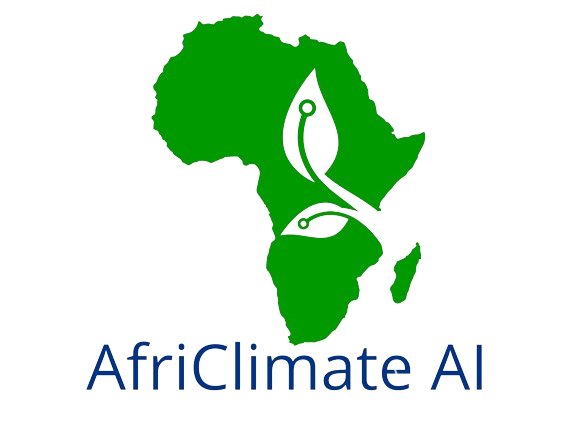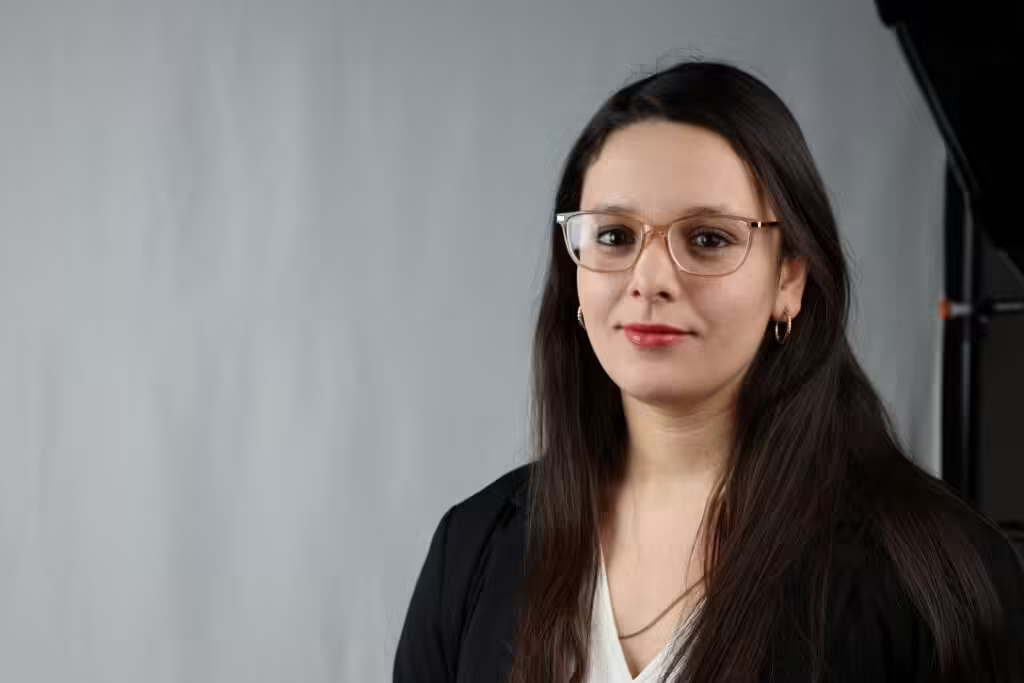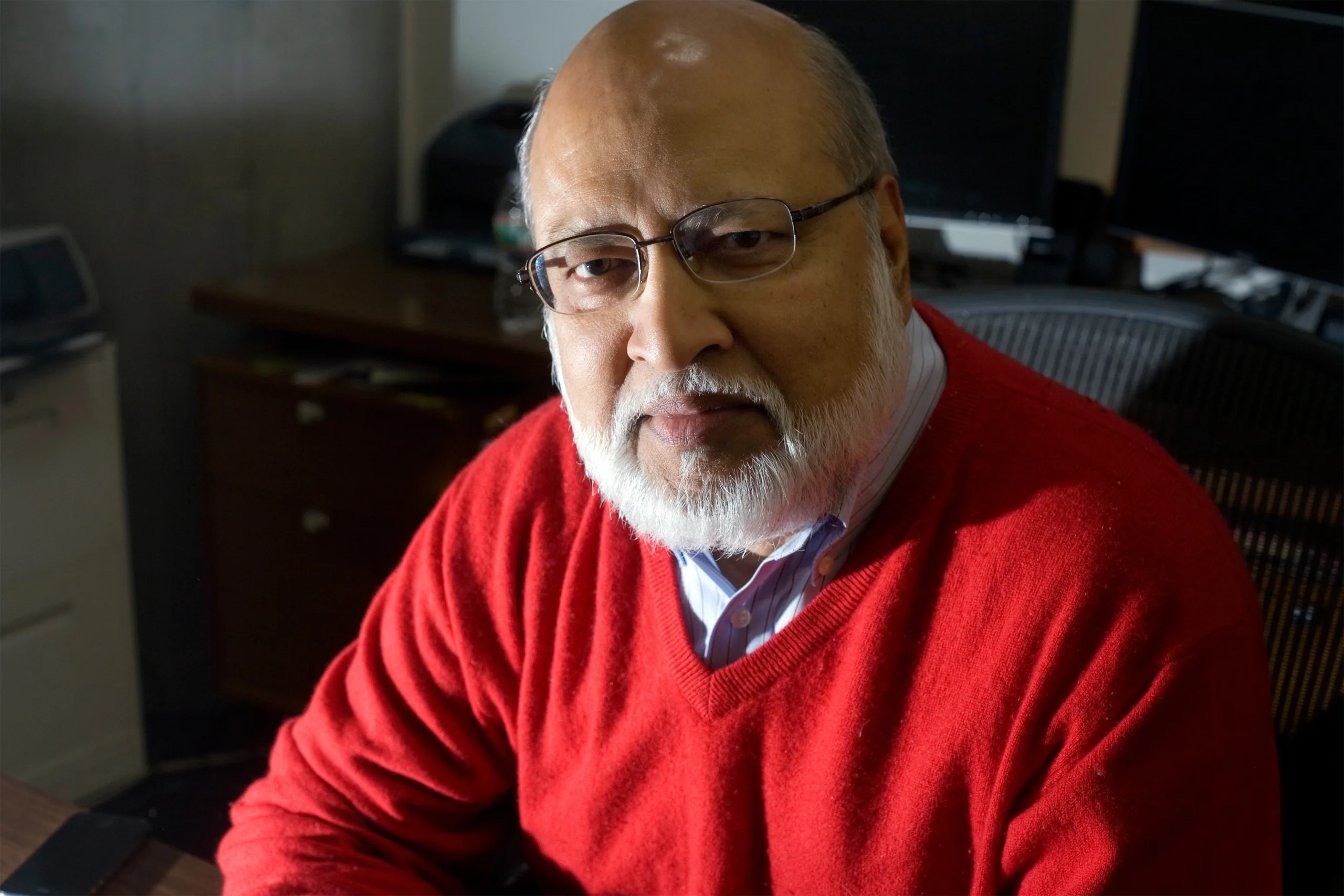Amal Nammouchi
IA AfriClimate is a grassroots community focused on leveraging artificial intelligence to address climate challenges in Africa. We spoke with Amal Nammouchi, one of the co-founders of AfriClimate AI, about the inspiration behind the initiative, some of their activities and projects, and their future plans.
Could you tell us how AfriClimate AI started – what inspired the launch of the initiative?
It all began last year at the Deep Learning Indaba in Ghana. The Deep Learning Indaba is the largest gathering of the African AI community and takes place annually. The spark for AfriClimate AI came from a workshop featuring the work of one of our co-founders, Rendani Mbuvha. Many of us work at the intersection of AI and climate change, and we found ourselves discussing similar issues, even though we are based across the continent and globally. This led to conversations about collaborative solutions to our common challenges, primarily related to the scarcity of Africa-related data in this field and the need for research capacity building. Nine of us united to form AfriClimate AI with a clear mission: to create a community of researchers, professionals, and policymakers focused on harnessing AI to address Africa-specific climate issues.
What are some of the activities and initiatives undertaken by AfriClimate AI?
Beyond a broader reflection on climate issues, we focus on specific strategic projects. Currently, one of our main areas of interest is the scarcity of climate data on Africa. Our preliminary research has shown that existing global climate models are often not suitable for the African context. This is crucial because Africa, while contributing little to climate change, is one of the most vulnerable continents. With AfriClimate AI, we aim to use AI to contribute to climate change mitigation with a focus on the African context, while tailoring our solutions to the diverse needs of different regions across the continent.
We also focus heavily on community and capacity building. Over the past year, we have concentrated on raising community awareness and bringing people together. We have held several workshops. The first took place in Nairobi and was part of the African Machine Learning Days. Of course, there was our recent workshop at the Deep Learning Indaba. We also presented at a workshop at the Hybrid Human-AI Systems (HHAI) conference in Sweden, which mainly focused on our position paper. We also held a workshop in July at the United Nations University AI and Climate Expert Meeting in Bonn, Germany.
Could you tell us a bit about your position paper?
Our position paper provides a preliminary analysis of how climate change specifically impacts Africa. Many African countries, for example, face floods or droughts. In economies based on agriculture, these floods and droughts significantly impact the economy. The position paper examines how the African continent is impacted by climate change and how we can leverage AI for climate resilience in Africa. We also address some challenges the continent faces. One of them is that we have one-eighth of the recommended number of weather stations, mainly because they are out of service or there is not enough funding to maintain them on the continent. I came across an interesting blog that said Germany has more weather stations than the entire African continent, which was surprising. And of course, weather stations allow you to collect the data you need for your AI models.
In this article, we detailed where we stand in the face of these climate change challenges and how, as AfriClimate AI, we are trying to mitigate them. Our approach is more oriented towards capacity building and grassroots movements of researchers, professionals, and policymakers.

How did you go about building the community and engaging researchers?
The spark for AfriClimate AI itself came from another community, Deep Learning Indaba, which started as a community and is now the largest AI gathering on the continent. These communities and non-profit organizations engage many researchers and professionals.
I think presenting at different workshops has helped grow our community. It is one of our main outreach channels. Many researchers have also resonated with AfriClimate AI’s mission. We have now started recruiting more people for the core team and have generated a lot of interest. So, everything we are doing is working. It’s amazing how far you can go when you discuss something with other researchers or professionals.
As a core team, we wanted the position paper to be just the beginning. Today, one of the projects involves developing this document. We address challenges we would like to build on, including data benchmarking.
Is this the main project you are focusing on right now?
Yes, it is one of the main projects.
We are working on several projects at the intersection of climate science and artificial intelligence, particularly focusing on Africa. The first project, launched in February this year, is a weather forecast benchmarking initiative. Our goal is to assess the performance of state-of-the-art weather forecasting models in Africa. We identified a significant gap: performance data for these African models is either unavailable or difficult to access. Through this benchmarking effort, we evaluate the accuracy and reliability of global weather forecasting models when applied to African regions. To enhance the rigor of our assessment, we incorporate local observational data, allowing us to analyze the performance of these models against real-world conditions. This also helps us identify areas where improvements can be made to training data to refine these models, particularly for African climates.
Building on our weather forecast benchmarking efforts, it is crucial to address the shortage of meteorological data in Africa to improve model accuracy and enhance climate resilience.
Our second project is a community initiative. Our goal is to make a difference by deploying affordable automatic weather stations across the continent to collect and share real-time data. Unlike traditional expensive stations, our durable and low-cost equipment can be installed and maintained by local communities. This local solution not only makes data collection more accessible but also allows communities to actively participate in climate adaptation efforts while providing valuable data for our benchmarking project to refine model performance in African regions.
What are your long-term goals and hopes for AfriClimate AI?
That’s a great question we’ve been asked often. For us, the first phase is community and capacity building. Then, we hope to advance projects that will yield tangible results.
An example of such a project involves early warning systems. For instance, there was an insect that, due to a cyclone one year, multiplied by billions and traveled from the Sahara to other parts of Africa, eating most of the crops. The fact is that authorities could have stopped it if they had known in advance. That’s where AI comes in. Through forecasting and prediction models, you can create early warning systems to mitigate these potential disasters.
If people want to get involved in AfriClimate AI, what is the best way for them to learn more or get started?
The journey of AfriClimate AI is just beginning, and everyone has the opportunity to contribute. Whether you are a researcher, developer, or passionate about climate action, we invite you to join us in addressing Africa’s climate challenges through AI.
Explore our open-source tutorials, collaborate on projects, or follow our updates to stay connected with our growing community. We are also actively seeking new members to join our mission. If you want to be part of AfriClimate AI, please fill out our recruitment form and get involved.
About Amal
Amal Nammouchi is the co-founder of AfriClimate AI, a community-driven non-profit organization that brings AI-based solutions to Africa’s climate challenges through capacity building, research, and innovation. Amal is currently a graduate researcher at Karlstad University, affiliated with the SOLVE – Solar Electricity Research Center in Sweden, where her research focuses on building robust optimization and control models for renewable energy communities (REC) under uncertainty, aiming to advance sustainable energy systems.
Amal holds an ICT engineering degree from SUPCOM, the Higher School of Communications of Tunis, with a specialization in Machine Learning for multimodal applications. Her most recent research includes leveraging large language models (LLM) for transparent and reliable decision-making, contributing to pushing the boundaries of responsible AI development.
With over a decade of experience in community development and international development, Amal has held numerous leadership positions, including Vice President of JCI El Alia (twice), President of IEEE SUPCOM SB, General Chair of IndabaX Tunisia 2019, and Chair of the Deep Learning Indaba 2024, contributing to nurturing the next generation of AI talent in Africa.
Beyond academia, Amal is passionate about entrepreneurship and strives to translate cutting-edge research into practical solutions with tangible impact. Her team won first place at the 10th edition of the MIT Energy and Climate Hackathon. Amal has also been recognized for her innovative projects, winning second prize at the EUNICE Innovation Cup and earning a gold medal at the I-fest² Project Competition by ATAST.
Tags: IA AfriClimate

Lucy Smith, Editor-in-Chief of AIhub.



